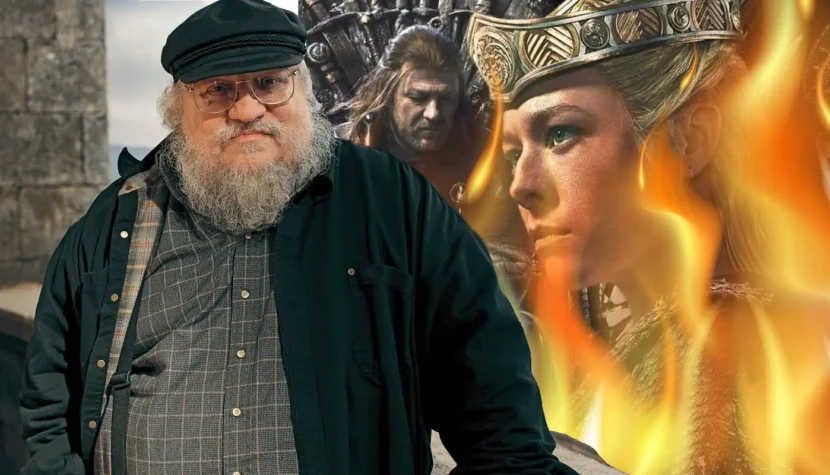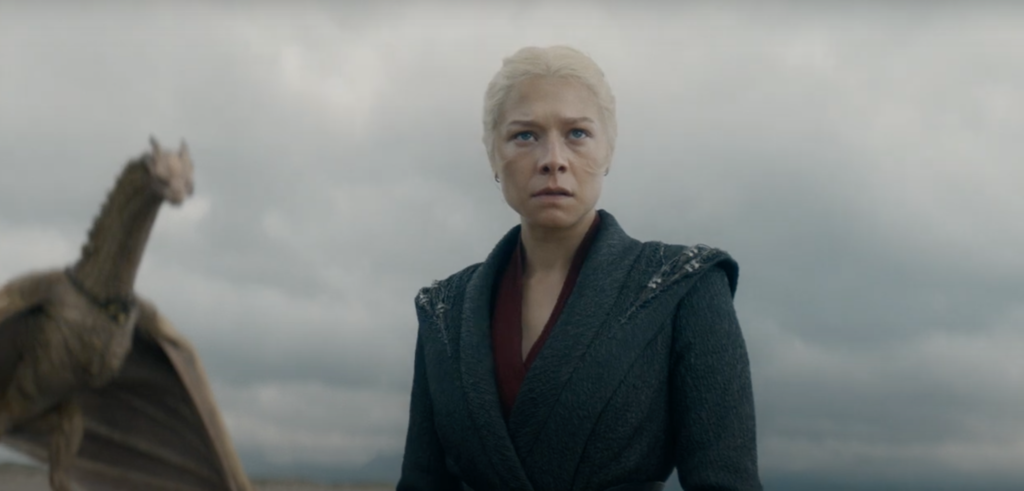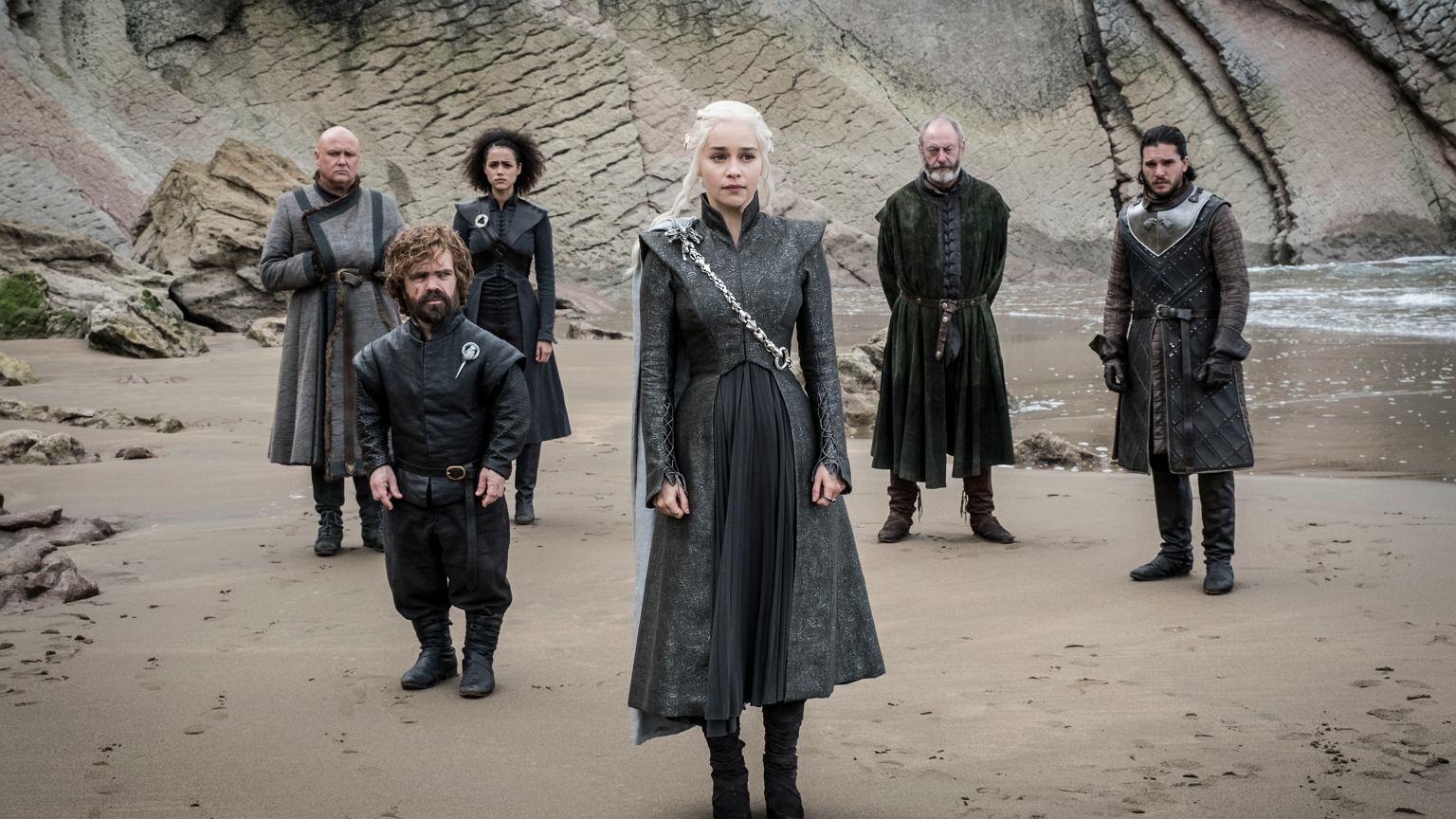QUO VADIS WESTEROS? How George R.R. Martin and Warner Bros. Are Killing a Cult Brand

The fantasy universe created by George R. R. Martin and set in Westeros is currently one of the most recognizable and profitable assets in pop culture. The saga “A Song of Ice and Fire,” initiated in the 1990s, gained global popularity with its TV adaptation, “Game of Thrones,” a series whose success and impact on film, television, and the entertainment industry have been extensively discussed and will likely continue to be. It’s no surprise that after breaking the commercial and prestigious bank, Martin and Warner Bros. (HBO) have no intention of letting the universe rest and are continuing to explore it by delivering more productions. However, things aren’t as rosy as the aforementioned parties would like – the brand has long been overshadowed by the unfinished saga, the finale of “Game of Thrones” is now legendary for its quality failure, and with the mixed reception and noticeable decline in form in the second season of “House of the Dragon,” the titular question arises – where is Martin’s universe heading?
What is the “A Song of Ice and Fire” Universe set in Westeros?
Let’s start with the basics – the universe in question primarily consists of the original saga, currently made up of five novels (out of the seven planned), the collection of short stories “A Knight of the Seven Kingdoms” about the adventures of Dunk and Egg, the partly compiled novel “Fire & Blood” (which is set to have a sequel titled “Blood and Fire”), and four other books that expand on the world presented (most notably “The World of Ice & Fire”), plus scattered novellas and alternate versions of stories published in standalone volumes. On the screen, there are eight seasons of “Game of Thrones,” which adapt the main saga – surpassing the books in terms of plot and reaching the overall conclusion – as well as “House of the Dragon,” which adapts “Fire & Blood.” Soon, in about a year – alongside the bi-annual cycle of “House of the Dragon” – we’ll get a live-action adaptation of “A Knight of the Seven Kingdoms.” Animated series about “The Sea Snake” Corlys Velaryon and Queen Nymeria are also in the works, and there are plans for a series about the Conquest of Westeros, as well as several unspecified projects. Some have already been canceled, like “Bloodmoon” with Naomi Watts, which even had a pilot, or a sequel following Jon Snow’s fate. Regardless of which series ultimately get the green light from the increasingly picky Warner executives, we can be assured that we won’t be lacking screen visits to Westeros anytime soon.

Unfinished Stories
The situation is different with the books. For several years, Martin has behaved as if he’s doing everything possible not to finish his magnum opus. The release date of “The Winds of Winter,” the sixth volume of the saga, has been postponed so many times that even the most devoted fans have probably lost faith in its publication, not to mention the seventh volume. Meanwhile, Martin continues to publish the aforementioned side books, works as a consultant on adaptations, gives dozens of interviews, and assures that the saga will soon be completed. It’s fair to say that the author has placed himself in a peculiar situation – when he sold HBO the rights to adapt his saga, he was on the verge of releasing the fifth volume and quite likely could have released the last two volumes before the show’s finale, even while maintaining a 4-5 year publishing cycle. However, this did not happen. In 2015 (during season 5), “Game of Thrones” caught up with the books in terms of plot, and Martin – either on his own initiative or under pressure from the producers – agreed to continue the series with an original storyline, albeit one that followed his key plot directions. The result is clear – from that point on, “Game of Thrones” increasingly became a narrative mess, culminating in the poorly written, possibly even haphazard, eighth season.
Martin finds himself in a stalemate. On one hand, the series significantly diverged from the books, cutting or rewriting some plotlines, which leaves room for the books. On the other hand, the author, willingly or unwillingly, revealed with his directions to the show the fundamental directions he intended to follow, also giving solid grounds to believe that what didn’t appear in the series – at least three powerful, key storylines – won’t have much significance in the final analysis. Furthermore, one might speculate that Martin has painted himself into a corner with his writing method and doesn’t know how to resolve the tangled storylines thus far.
Cynicism and Greed

There’s no doubt that the entire “A Song of Ice and Fire” universe, especially its audiovisual branch, suffers from the current climate in the film and entertainment industry. The production of the second season of “House of the Dragon” was disrupted by the writers’ strike, which undoubtedly affected the series’ creation process, but more importantly, it signals deeper problems behind the quality issues. Warner’s (and not only Warner’s) harsh financial policies, skimping on budgets for basic issues such as writers’ room salaries responsible for crafting convincing scripts and refining them, is a context worth remembering. This doesn’t mean that stupid scenes or dialogues – like Rhaenyra’s trip to King’s Landing in disguise, inspired more by Looney Tunes than Martin’s prose – should be excused by studio pressure, but it creates working conditions in which some professionals refuse to work, while others work under such stress and pace that bigger and bigger blunders slip through the production stages. If we add to this cynical marketing strategies, where practically an entire season of a series can be an overly stretched teaser for the next season (again, I criticize the unfortunate “House of the Dragon”), we get an equation from which it’s increasingly difficult to expect quality entertainment.
A Colossus on Clay Feet
The combination of the author’s self-entanglement and the current state of the entertainment industry, increasingly brutal and calculating, has brought the entire universe to a Gordian knot that seems impossible to untangle. George Martin might think he’s built an empire – he is and will remain for some time the most profitable fantasy writer, and his works will go down in the history of not only the genre but also the entire Western culture. However, it’s a colossus on clay feet, because if he ever finishes the saga, the canon will be divided between the book version (theoretically the primary one as the author’s vision) and the series version (chronologically the first), and the branches of the main saga will be tainted by the mediocrity resulting from excessive distraction. The individual elements will also fail to connect into a unified universe due to a lack of a comprehensive vision and oversight, merely awkwardly attempting to imitate larger wholes, much like the clumsily introduced Targaryen prophecy subplot in “House of the Dragon.”

Warner/HBO, like Martin himself, will certainly continue to profit from Westeros. Despite the above-mentioned quality issues, both “Game of Thrones” and “House of the Dragon” have made their money, and future series will likely be financially viable enough to ensure income for all the main stakeholders. However, the question remains whether the point will be reached where the golden goose is squeezed so hard that viewers will no longer tolerate another blatant cash grab and mediocrity, turning away from the brand for good. Given the contemporary market dynamics and social engineering techniques used in marketing, this is unlikely, but as recent years have shown, reality can surprise even the best growth experts. Nevertheless, the main concerns at this moment are about the quality of the universe, not its revenue. Martin himself seems to have doubts about whether he can successfully conclude the saga artistically, which may be one of the reasons behind his monumental procrastination. How many massacres of beloved characters, blessed by the saga’s author, by lazy, arrogant, or simply incompetent screenwriters can fans endure? When the current promotional hype fades, will the “A Song of Ice and Fire” universe be able to maintain its status as a cult brand with a fractured canon and largely disappointing endings to its captivating stories? We’ll find out in a few years, or perhaps decades.

It’s somewhat ironic that the universe created by Martin suffers from the human weaknesses that the American author has often condemned in his prose as the source of misfortunes. Westeros as a global brand now seems to be in the phase of early decline, where the glory of its past is still bright enough to bask in, and the coffers are still full and larger than ever. However, it is hard to overlook the processes of decay that will likely lead to the downfall of this entertainment empire in the foreseeable future. The reasons? As usual, an overgrown appetite that leaves behind the organic foundations and integrity upon which it was originally built.

